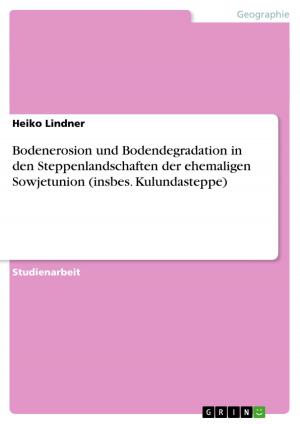Staging the ghost in Shakespeare´s 'Hamlet' along the possibilities of the theatre at Shakespeare´s time
Fiction & Literature, Literary Theory & Criticism, British| Author: | Helga Mebus | ISBN: | 9783638065610 |
| Publisher: | GRIN Verlag | Publication: | June 19, 2008 |
| Imprint: | GRIN Verlag | Language: | English |
| Author: | Helga Mebus |
| ISBN: | 9783638065610 |
| Publisher: | GRIN Verlag |
| Publication: | June 19, 2008 |
| Imprint: | GRIN Verlag |
| Language: | English |
Seminar paper from the year 2007 in the subject English Language and Literature Studies - Literature, grade: 2,0, University of Cologne, 10 entries in the bibliography, language: English, abstract: Shakespeare does not provide his readers with many direct stage directions in his plays. Comparing Hamlet to - just as an example - the twentieth century play The Glass Menagerie by William Tennessee shows that Tennessee, in contrast to Shakespeare, gives detailed information on how the players should look like, how they should move and speak. There is a whole chapter called 'Production Notes.' Each character has a full paragraph describing how he looks like and has to act, even before they appear on stage. The description of a scene's setting, as another example, fills up to two pages here. (Compare Tennessee 1945) Shakespeare, in contrast, leaves his readers with many indirect stage directions. Here, the reader has to find hints in the actors' speeches that tell him how the stage-settings and actors should look like, what mood they are in, and thus how they should speak and move. Detailed studying is therefore necessary in advance of any production. Not only the play itself needs a close look but also the culture and beliefs of Shakespeare's contemporary audience. The theatres' possibilities at his time are another aspect. The following considers a single character in Shakespeare's Hamlet, namely the ghost of Hamlet's father. Since ghosts are supernatural and thus do not lead to the same image in everyone's mind it is important to especially take a look at this character and try to find out how Shakespeare might have wanted it to appear on stage. This paper provides necessary background information, at first, about ghosts and the theatre at Shakespeare's time. Then, the four ghost scenes in Hamlet are analyzed, considering their staging of the ghost during Shakespeare's age along the play's direct and indirect staging instructions.
Seminar paper from the year 2007 in the subject English Language and Literature Studies - Literature, grade: 2,0, University of Cologne, 10 entries in the bibliography, language: English, abstract: Shakespeare does not provide his readers with many direct stage directions in his plays. Comparing Hamlet to - just as an example - the twentieth century play The Glass Menagerie by William Tennessee shows that Tennessee, in contrast to Shakespeare, gives detailed information on how the players should look like, how they should move and speak. There is a whole chapter called 'Production Notes.' Each character has a full paragraph describing how he looks like and has to act, even before they appear on stage. The description of a scene's setting, as another example, fills up to two pages here. (Compare Tennessee 1945) Shakespeare, in contrast, leaves his readers with many indirect stage directions. Here, the reader has to find hints in the actors' speeches that tell him how the stage-settings and actors should look like, what mood they are in, and thus how they should speak and move. Detailed studying is therefore necessary in advance of any production. Not only the play itself needs a close look but also the culture and beliefs of Shakespeare's contemporary audience. The theatres' possibilities at his time are another aspect. The following considers a single character in Shakespeare's Hamlet, namely the ghost of Hamlet's father. Since ghosts are supernatural and thus do not lead to the same image in everyone's mind it is important to especially take a look at this character and try to find out how Shakespeare might have wanted it to appear on stage. This paper provides necessary background information, at first, about ghosts and the theatre at Shakespeare's time. Then, the four ghost scenes in Hamlet are analyzed, considering their staging of the ghost during Shakespeare's age along the play's direct and indirect staging instructions.















